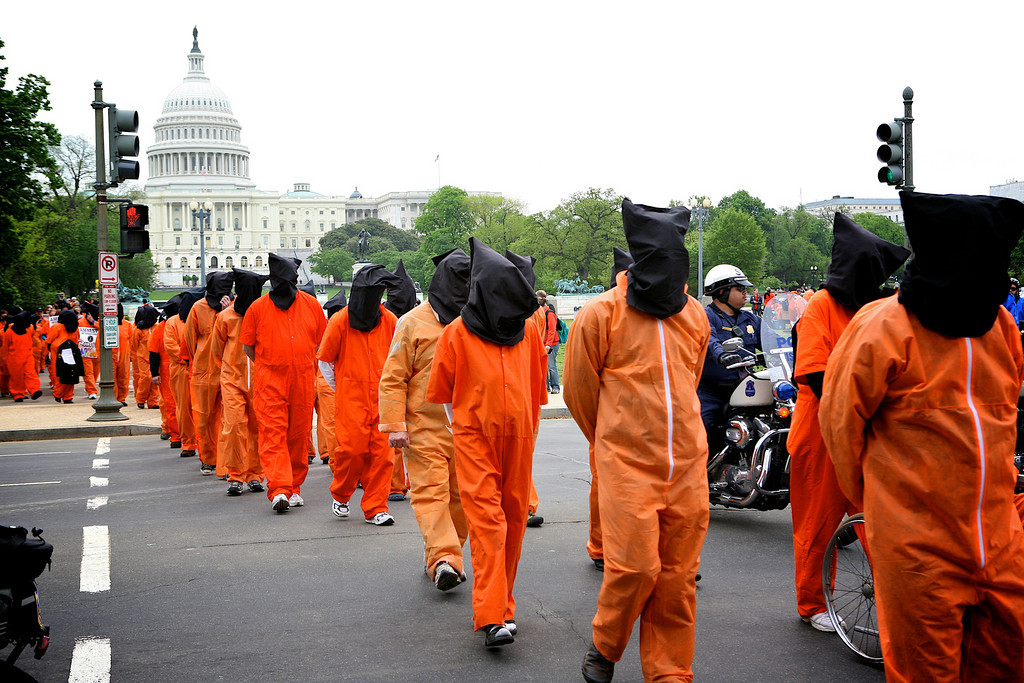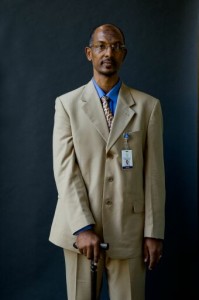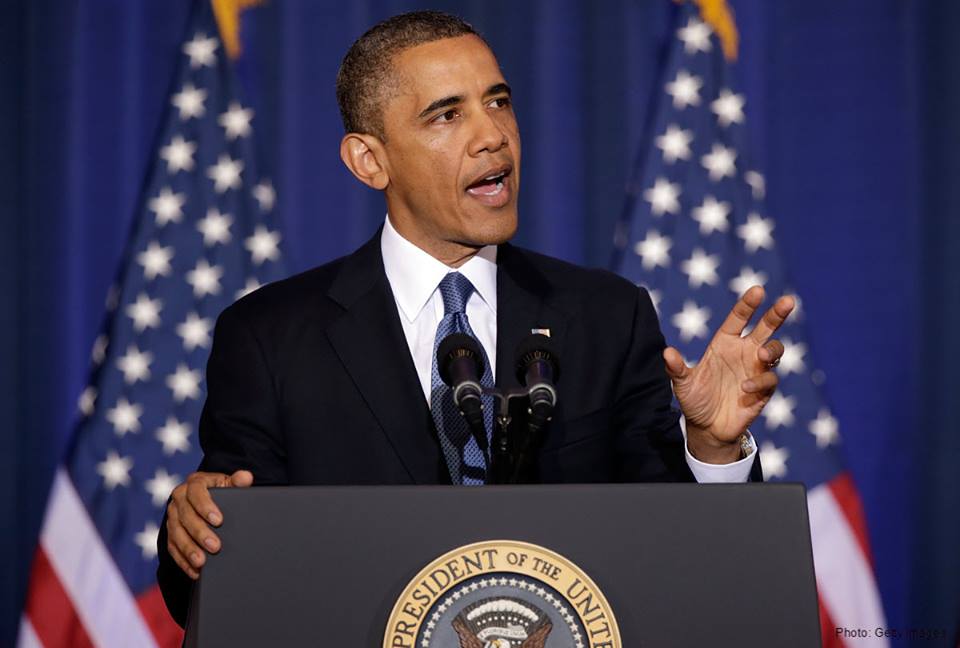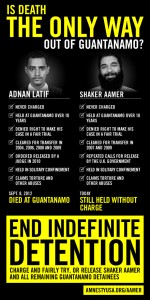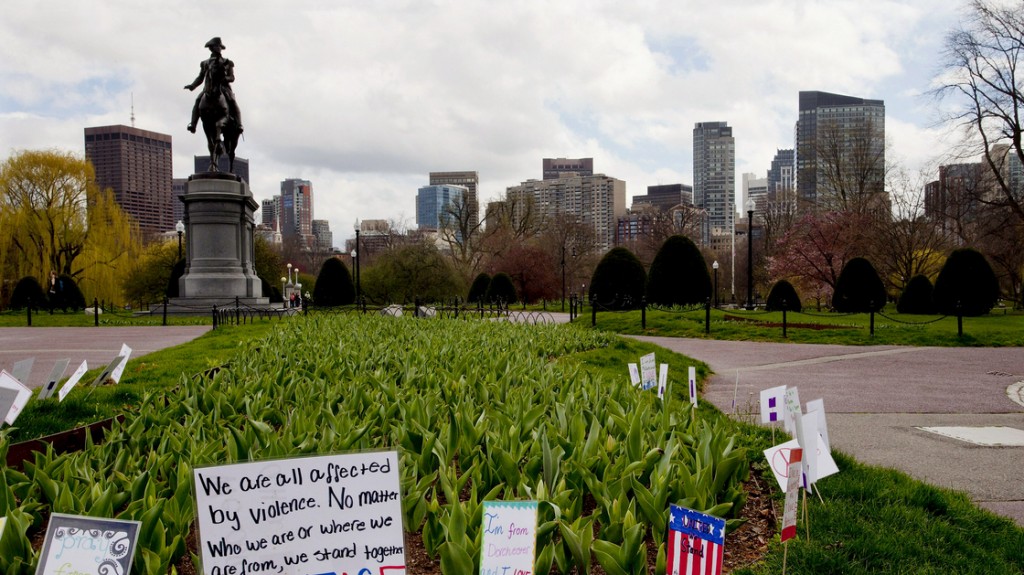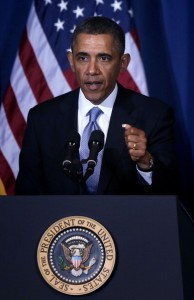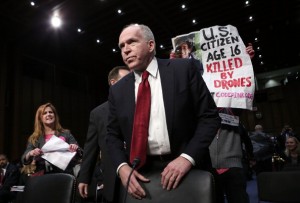UPDATE: On 4/30 President Obama again vowed to close Guantanamo. While we welcome this call words must be followed up by action, such as the steps below.
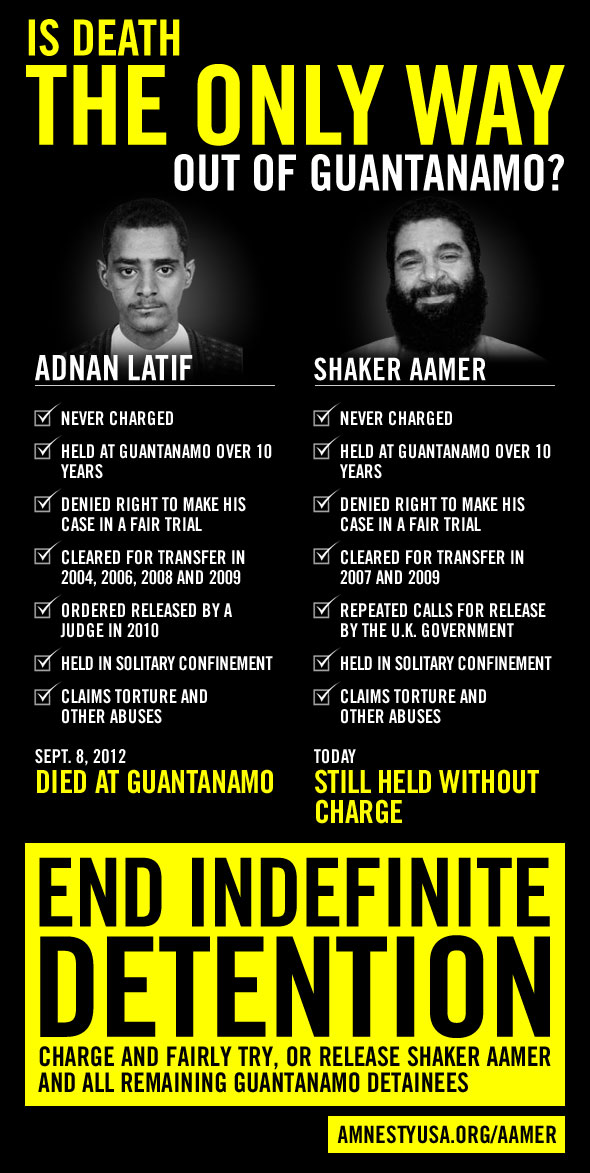 Sign our new petition telling President Obama and Congress that you support closing Guantanamo.
Sign our new petition telling President Obama and Congress that you support closing Guantanamo.
Imagine you’re Shaker Aamer, locked up without charge for 11 years, thousands of miles from home, despite being cleared, for years, to leave. The UK government has repeatedly intervened on your behalf in an effort to reunite you with your wife and children in London. But you’re still held. You go on hunger strike in an attempt to draw attention to your plight. You have told your lawyers that you and your fellow inmates are being beaten, deprived of sleep and punished just for protesting. And all this is being done by the United States government, whose president promised four years and three months ago to shut Guantánamo for good. Just imagine.
Two months into the most recent hunger strike at Guantánamo and over three years after the deadline for closing the facility, President Obama has barely said a peep about his broken promise. But ignoring the problem at Guantánamo is simply unacceptable. The US government is obligated under the International Covenant on Civil and Political Rights, as well as other treaties and binding laws, to respect, protect and fulfill human rights. That’s a point made last week by the UN High Commissioner for Human Rights, Navi Pillay, in this strong statement.
As High Commissioner Pillay points out, yes, those responsible for the September 11 attacks must be brought to justice, and the government has a duty and responsibility to ensure safety. But the US can’t exempt itself from its human rights obligations in doing either of these things. That’s why instead of Guantánamo, the criminal justice and law enforcement systems in the US – available from day one – should be used. These systems are far from perfect and must themselves be reformed, but they are quipped to ensure justice for the 9/11 attacks and address any security risks posed by those held at Guantánamo.
SEE THE REST OF THIS POST
